Interested in testing your Mandarin language skills? If so, there is one exam you cannot afford to miss. That’s the HSK test, the most popular Chinese proficiency test.
Chinese has become more popular in the past decade. Learning Mandarin has many benefits, such as a career, hobbies, and education in China. You will also gain insight into China’s rich culture, history, and tradition.
You may want to know your current language ability if you are a Chinese learner.
HSK is known to almost everyone who has taken a Chinese course. But what is HSK exactly? Why do you need to take it, and is it worth it?
Let’s learn everything from test centers and fees to dates, test structure, question format, and marking system.
TABLE OF CONTENTS
- What is HSK?
- The types of HSK examinations
- All about Standard HSK
- How to prepare for HSK?
- Should you take the Chinese HSK Test?
What is HSK?
The acronym HSK stands for Hànyǔ (Chinese), Shuǐpíng (level) Kǎoshì (test). Hence, it refers to the “Chinese Level Test.”
Hanyu Shuiping Kaoshi / 汉语水平考试 is the standard official Chinese test.
HSK measures the language ability of non-native speakers. It is open to foreigners, overseas Chinese, and ethnic minorities within China.
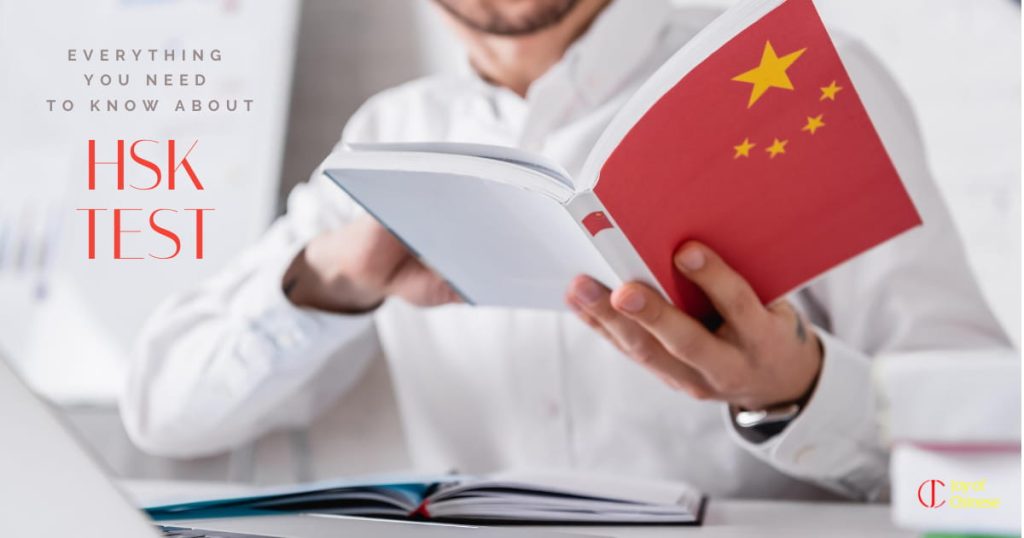
Who conducts the exam?
The Center for Language Education and Cooperation (CLEC) administers the HSK test globally. The Ministry of Education (MOE) of China oversees its operations.
CLEC is a non-profit educational and cultural organization that promotes Chinese language study and conducts standard tests like CTCSOL and HSK.
They run over 500 Confucius Institutes in over a dozen countries. It also offers flagship programs like Chinese Bridge, teacher training, and many scholarships.
They promote studying in China and student exchange programs.
Hanban was the last name. However, in July 2020, it changed its name to CLEC because of controversy over how it functions.
Recognition of HSK worldwide
HSK was founded in 1984. They conducted the first HSK exam outside of China in 1991.
Over the years, it has become the most prestigious test of the Mandarin language for non-native Chinese speakers.
The Chinese government institutions officially recognize and award different variants of HSK.
The HSK test is the most popular language test for Chinese today. That is why all government bodies, businesses, and public and private educational institutions accept and trust HSK certification.
Should you take the HSK Test?
The HSK offers several benefits. This exam aims to certify the skills of non-natives.
You can use HSK in many ways. This includes, but is not limited to, a relaxed stay in China, jobs requiring Chinese, studying abroad in China, academic pursuits, boosting confidence, etc.
Those who do not speak Chinese as their first language but would like to work or study in China will find it helpful. As an ESL teacher in China, I find it helpful.
You may be unable to impress potential employers with your Chinese knowledge alone.
In most cases, companies demand documentary evidence before an interview. In that case, HSK credentials could increase your chances of getting shortlisted.
This increases your chances of getting a scholarship, visa, and permanent residency in China.
It also confirms your understanding and motivates you to do better. You become more confident.
Who can take the HSK test?
There are no special requirements or guidelines.
Foreigners who don’t speak Mandarin as a first language can take the HSK test to find their current ability. It is also open to the Chinese diaspora and ethnic minorities in China.
There is no age restriction. There are no minimum and maximum ages.
The types of HSK examinations
There are 5 main variants of the HSK. The most popular and common one is the standard HSK.
Four more specialized tests are also available: the HSK Speaking Test (HSKK), the Youth Chinese Test (YCT), the Business Chinese Test (BCT), and the Medical Chinese Test (MCT).
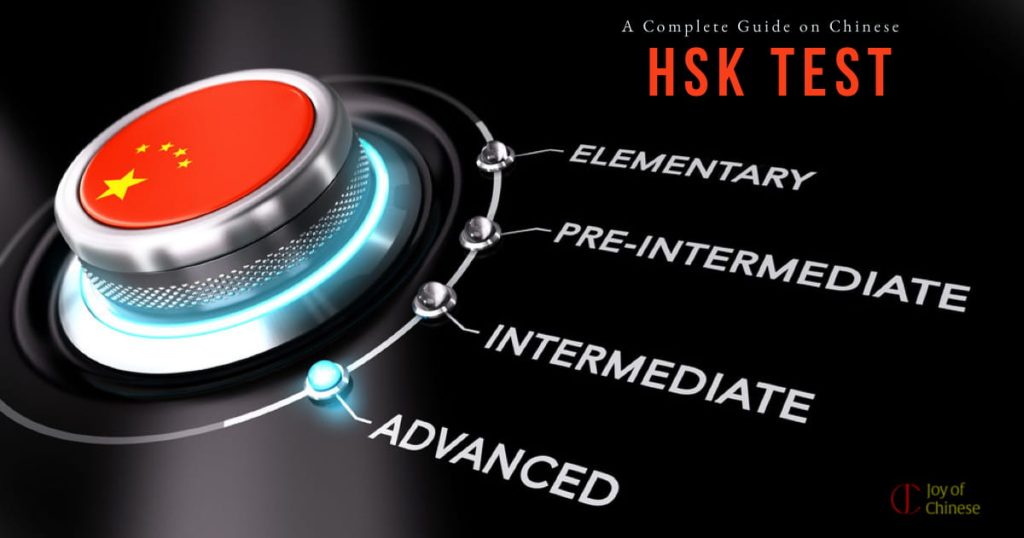
1. HSK Speaking Test (HSKK)
The HSKK (the HSK speaking test) assesses a candidate’s verbal competency.
There are three levels of HSKK: Primary, Intermediate, and Advanced. Each sublevel has three sections: listen and repeat, picture description, and answer the question.
They conduct the HSKK test by recording audio. The HSKK evaluates your pronunciation, tonal ability, flow, and overall Mandarin fluency.
The advanced level corresponds to level C of the Common European Framework of Reference for Languages (CEFR).
The maximum score is 100, and the minimum score is 60 to pass the test. Results are valid for two years following the announcement of results.
Because this is only an oral exam, you can combine it with other Chinese ability tests. They record the candidate’s speech during the interaction.
2. Youth Chinese Test (YCT)
Students whose mother tongue is not Chinese can take the new Youth Chinese Test.
Through YCT, test takers show their ability to express themselves in day-to-day activities. It is also for educational pursuits and professional experiences.
There are two independent tests — an oral exam and a written test.
Written language has four levels (I, II, III, and IV), while speaking has two levels (elementary and intermediate).
Within three weeks of passing the test, you will receive the results.
3. Business Chinese Test (BCT)
Peking University designed BCT following the directions of the Chinese Language Council International.
BCT measures candidates’ Mandarin skills in business communication, professions, and everyday work settings.
Business Chinese Test has two independent tests — (listening & reading) and (speaking & writing). It is possible to take either or both tests at the same time.
The specific skill scores (listening, speaking, reading, and writing) range from 0 to 500; each level is 100.
Recently, they introduced two forms of tests: paper-based and computer-based.
There are two levels of written exams: BCT (A) and BCT (B). The score is valid for two years, with no minimum or maximum age requirements.
4. Medical Chinese Test (MCT)
Are you interested in pursuing an MBBS in China?
Take the Medical Chinese Test. They will conduct the 2025 exams in May and November.
The MCT program is for foreigners who wish to study medicine or nonmedical fields in China, including clinical diagnosis.
They measure the candidate’s ability to communicate Mandarin effectively in their field, such as with patients, doctors, nurses, medical personnel, and hospital staff.
MCT has three parts: reading, listening, and writing. Your score indicates your ability to communicate in the language.
You must also learn hundreds of words, phrases, and sentences related to medicine and pharmaceuticals.
All about Standard HSK
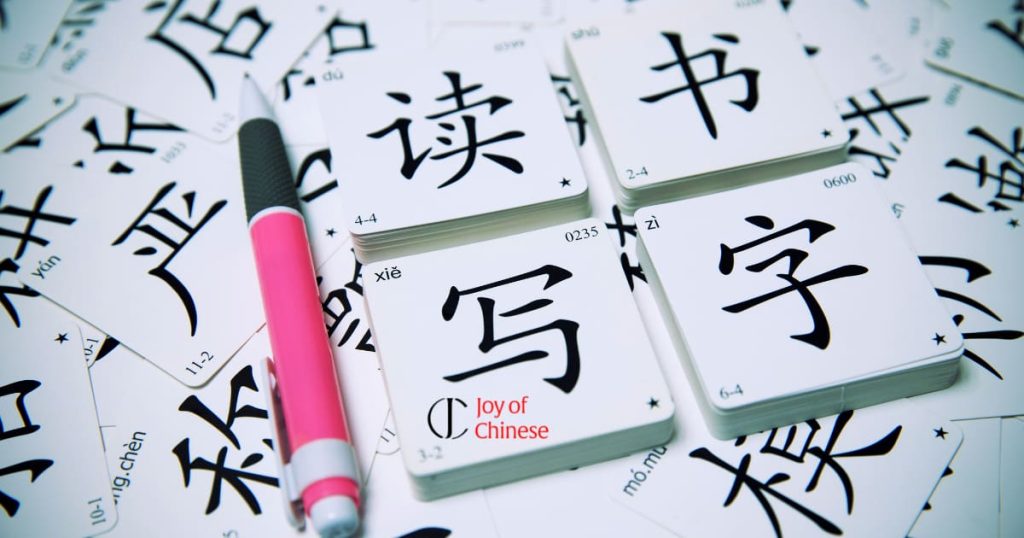
Here is everything related to the standard HSK (Hanyu Shuiping Kaoshi).
What are the HSK levels?
The HSK test comprises six levels: I, II, III, IV, V, and VI.
- HSK 1 — Knowledge of beginner Chinese words and phrases.
- HSK 2 — Ability to use basic Chinese and carry out simple tasks.
- HSK 3 – Can communicate daily for personal, academic, and professional goals.
- HSK 4 — Speak upper intermediate with native speakers on various topics.
- HSK 5 — You can speak fluently and read a Chinese newspaper.
- HSK 6 — Express yourself the way you want in any situation, either speaking or writing. Almost near-native.
HSK 1 and 2 include writing and reading skills, while HSK 4, 5, and 6 include writing, reading, and listening.
The speaking section doesn’t exist. Thus, to test your speaking skills, take HSKK. The oral tests have three levels.
- (i) HSK (Elementary),
- (ii) HSK (Intermediate), and
- (iii) HSK (Advanced).
The new HSK levels (HSK 3.0)
HSK is undergoing the most significant reform in its history. A nine-level structure replaces the current six-level system, forming the “Three Stages and Nine Levels” test grading system.
They added levels 6-9 to make it on par with the CEFR scale. HSK levels 6 to 9 would be close to advanced C1 and near-native C2. The new format will look more or less like the one below.
- HSK 1, 2, and 3 — Beginners, like A1 and A2.
- HSK 4, 5, and 6 — Intermediate, like B1 and B2, and
- HSK 7, 8, and 9 — Advanced, like C1 and C2.
The beginners have 3 levels: beginners, elementary, and pre-intermediate. HSK 3 will be identical to A2. Likewise, HSK 6 and 9 will look similar to B2 and C2.
The difficulty level, cumulative vocabulary, passing marks, and arrangement will also change.
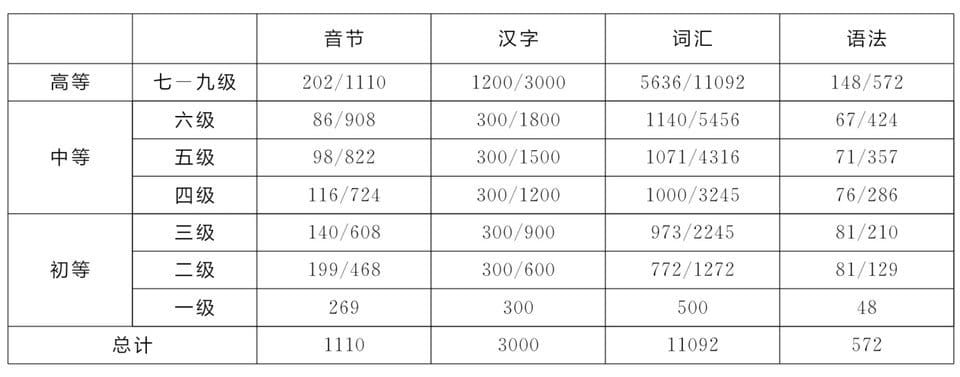
There would be one notable difference in the number of words. For example, the highest level will cover over 10,000 vocabulary words instead of 5,000. This is necessary to bring it to level C2, near-native of CERF.
The new HSK 3.0 is more complex than the current HSK 2.0. For example, learners must study vocabulary, grammar rules, and characters more.
New HSK levels 7, 8, and 9 and exams were introduced last year.
Test structure and syllabus
Most questions are MCQs (Multiple-Choice Questions or True/False). However, there are also subjective questions at the higher levels.
Let’s find out the exact outline of each level, how many words it requires, and the test duration.
| HSK Levels | Description | Test Duration | Total Words Required |
|---|---|---|---|
| HSK1 | Level 1 of HSK is the easiest. As a novice learner, you will understand simple Chinese phrases, greetings, beginner vocabulary, grammar, and simple sentence formation. This builds the foundation for further study. | 40 | 150 |
| HSK2 | HSK-2 prepares candidates to write and read about everyday situations and activities. Here, you have a general understanding of familiar subjects and can hold basic conversations. An elementary level is the starting point for a lower intermediate level. | 55 | 300 |
| HSK3 | Level 3 of HSK goes beyond basic concepts and is the midway point for Mandarin proficiency. Communicate for various purposes, both personal and professional, using intermediate-level sentences. You can also use this level to communicate with Chinese speakers abroad. | 90 | 600 |
| HSK4 | HSK 6 is the highest and most challenging level. It allows you to write and speak Chinese fluently. Even though you may not be near-native fluent, you can use several idiomatic expressions and complex tones to spontaneously make complex sentences. | 105 | 1200 |
| HSK5 | Level 5 of HSK is considered advanced. You can read Chinese newspapers, magazines, documents, and web pages in Chinese with it. You can speak, read, and listen to virtually any topic with it. You can also enjoy movies for learning Chinese, tv-shows and listen to music with little problem | 125 | 2,500 |
| HSK6 | HSK 6 is the highest and most challenging level. It allows you to write and speak Chinese fluently. Even though you may not be near-native fluent, you can use several idiomatic expressions and complex tones to make complex sentences spontaneously. | 140 | 5,000 |
How does the HSK test work?
You can take the exam either on a computer or in written format.
Here are some valuable pointers about the test before choosing a computer vs. written exam.
- HSK 1 and HSK 2 are the primary HSK exams, including Pinyin and characters. Both tests require listening and reading.
- HSK 3 to HSK 6 has only Chinese characters without Pinyin. It has 3 sections: listening, reading, and writing.
I suggest the computer test. Most learners and foreigners may find writing every character by hand challenging.
You can easily score in the HSK test by typing the Pinyin on the keyboard and automating the characters.
The scoring system & passing mark
There is a maximum mark of 100 for each of the three sections: writing, reading, and listening.
They provide all the characters and Pinyin for the first two levels. In contrast, they do not offer Pinyin for the remaining levels; everything is in Chinese characters.
HSK 1 and 2 do not have a listening section, so the total score is 200. Thus, to pass, you must score at least 120 points out of 200.
HSK 4, 5, and 6 each have a maximum of 300 points. To pass, you must score 180 points out of 300.
What is the HSK score validity?
HSK test scores expire two years from the date of the test result. Once the validity period ends, you must retake the test to be officially counted.
Suppose your goal is to enroll in a university in mainland China. In that situation, your scores are valid for only two years from the test date.
How to register for HSK?
Each exam has a different final date, so check the deadline before submitting your application.
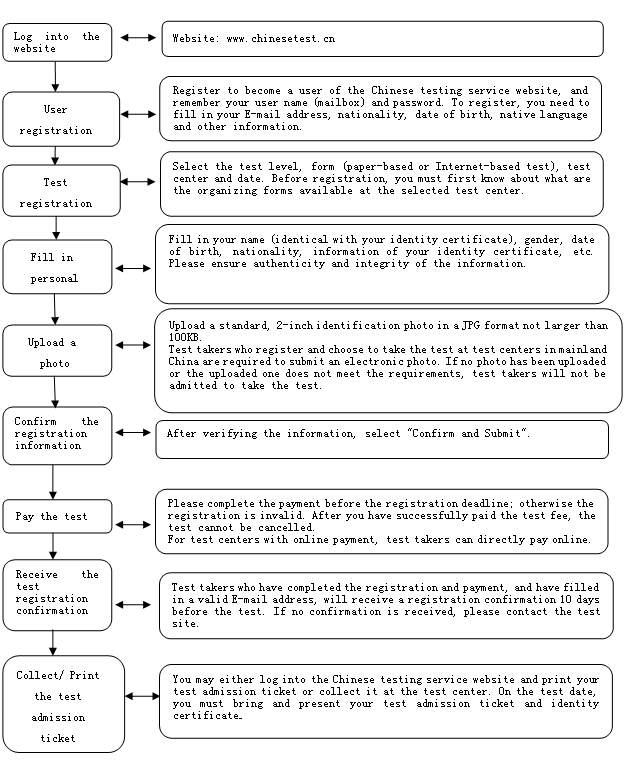
The official website allows you to register directly and create a new account if you don’t already have one.
Afterward, you can choose the level, dates, and test center and pick between paper-based and online testing.
Next, upload your photo and enter your identification number (passport, driving license, etc.). Finally, submit the application form along with the payment.
You can also contact the nearest HSK test center, and they will assist you with the registration process.
HSK testing centers
Chinese Testing International (CTI) is a government-funded organization that manages the Chinese test. They do this either independently or in collaboration with educational institutions worldwide.
As of January 2025, CTI maintains nearly 1400 HSK testing centers in around 220 nations and supports over 30 million Chinese students worldwide. Some exams can be taken online, but test centers may not offer every exam on all test dates.
Taiwan (the Republic of China) does not administer the test. Instead, Taiwan has its own Chinese exam, i.e., the TOCFL, which is unavailable in mainland China, Hong Kong, or Macau.
HSK 2025 test dates
They publish the test dates once a year and usually conduct them many times, nearly every month a year worldwide, so you have plenty of dates to select from.
| Test Dates | Written Exam Registration Last Date | Online Exam Registration Last Date | Paper Results Date | Date of results (Paper/Internet) |
|---|---|---|---|---|
| Jan 12 (Sun) | Dec 16, 2024 | Jan 02 | Jan 03 | Feb 19 / Jan 27 |
| Mar 09 (Sun) | Feb 10 | Feb 27 | Mar 06 | Apr 09 / Mar 24 |
| Apr 12 (Sat) | Mar 16 | Apr 02 | Apr 11 | May 19 / Apr 28 |
| May 17 (Sat) | Apr 20 | May 07 | May 09 | June 17 / June 03 |
| June 22 (Sun) | May 26 | June 12 | Jun 12 | July 22 / July 07 |
| July 19 (Sat) | June 22 | July 09 | Jul 11 | Aug 19 / Aug 04 |
| Aug 17 (Sat) | July 21 | Aug 07 | Aug 08 | Sept 17 / Sept 01 |
| Sept 07 (Sun) | Aug 11 | Aug 28 | Aug 29 | Oct 14 / Sept 22 |
| Oct 18 (Sat) | Sept 21 | Oct 08 | Oct 09 | Nov 18 / Nov 03 |
| Nov 15 (Sat) | Oct 19 | Nov 05 | Nov 06 | Dec 15 / Dec 01 |
| Dec 07 (Sun) | Nov 10 | Nov 27 | Nov 28 | Jan 07, 2026 / Dec 22 |
The registration period often lasts four weeks before the exam. However, for internet-based exams, the deadline is ten days before the respective test.
HSKK 2025 speaking exam dates
| Test Dates | Paper and Pencil Exam | Internet-based Exam | Date of Results |
|---|---|---|---|
| Jan 12 (Sat) | Dec 16, 2024 | Jan 02 | Feb 19 / Feb 10 |
| Mar 09 (Sun) | Feb 10 | Feb 27 | Apr 09 / Mar 31 |
| Apr 12 (Sat) | Mar 16 | Apr 02 | May 19 / May 09 |
| May 17 (Sat) | Apr 20 | May 07 | June 17 / June 06 |
| June 22 (Sun) | May 26 | June 12 | July 22 / July 14 |
| July 19 (Sat) | June 22 | July 09 | Aug 19 / Aug 08 |
| Aug 17 (Sat) | July 21 | Aug 07 | Sept 17 / Sept 08 |
| Sept 07 (Sun) | Aug 11 | Aug 28 | Oct 14 / Sept 29 |
| Oct 18 (Sat) | Sept 21 | Oct 08 | Nov 18 / Nov 07 |
| Nov 15 (Sat) | Oct 19 | Nov 05 | Dec 15 / Dec 05 |
| Dec 8 (Sun) | Nov 10 | Nov 27 | Jan 7, 2026 / Dec 29 |
2025 examination fee
The test fee varies depending on where you take the test.
Its cost is like that of other popular language tests, such as DELE, CILS, DELF, CILS, SIELE, CIPLE, and Goethe-Zertifikat. But higher than exams like JLPT and TOPIK.
For instance, the USA prices range from $30 to $80. While in India, it is between ₹ 1500 and 6500.
In mainland China, HSK level 1 costs 150RMB. After that, the price goes up by 100RMB for each grade. The highest level, level 6, is 650RMB.
How to prepare for HSK?
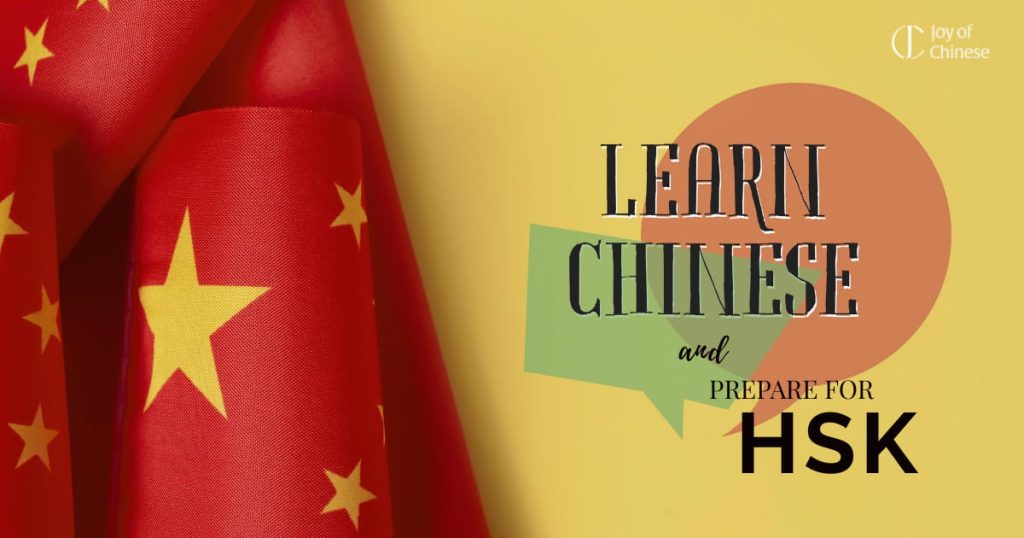
Chinese is one of the most challenging languages. But there are ways to simplify it.
Success in the HSK test requires passion, perseverance, practice, and preparation.
In the era of easy internet access, many online learning resources are available, such as books, Chinese learning apps, audio and video lessons, and LMS programs.
These can be a starting point but not an end. Most online study materials are geared towards beginners rather than higher levels (3 to 6).
Finding an experienced teacher or enrolling at a Chinese institute will prove more beneficial. The great news is that major cities have no shortage of language centers.
The fastest way to pass the HSK would be to take a Mandarin Chinese language course at any language school. Keats offers an intensive HSK Test Preparation Course if you plan to learn Chinese in China,
As language and culture intertwine, you can also learn about China’s history and cultural aspects.
To help you prepare better and ace the exam, you can also find the sample papers and previous year’s questions on the websites.
Should you take the Chinese HSK Test?
You might want to know how much you studied and your exact level. It is reasonable to expect a minimum score for a visa application in China.
HSK certificate can help you show potential employers how good you are at Mandarin. Plus, you might want to improve your Chinese proficiency for career advancement.
The HSK test is an excellent way to differentiate yourself from competitors regardless of your motives.
The HSK test certificate can add significant value to your resume. Plus, it can help you with enormous success in your personal, academic, and professional dreams!
Do you intend to take the exam? Share your views and questions in the comment below.












How can Indians register for the HSK examination? Can we get some links?
You have to contact the nearest test centers, and they will provide you options on how to register yourself. For example, Mumbai University conducts the test. You can check the list of testing centers on the official website.